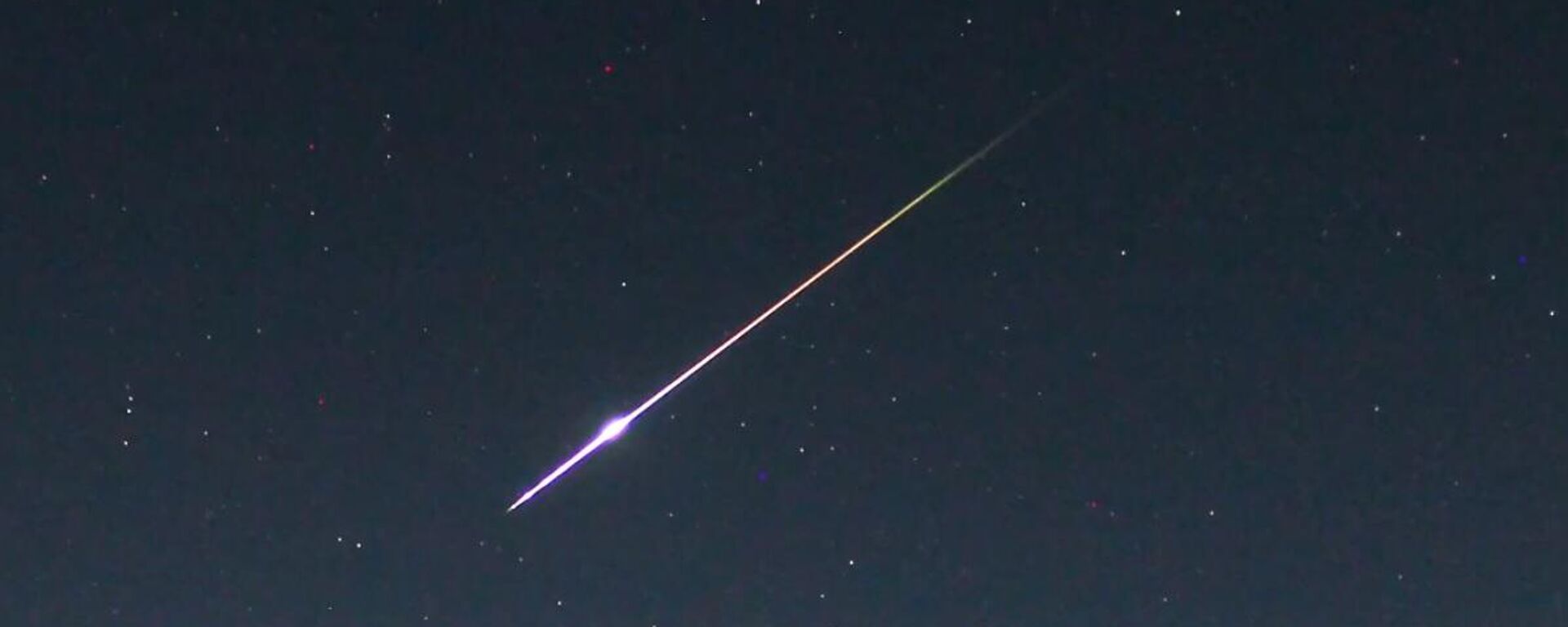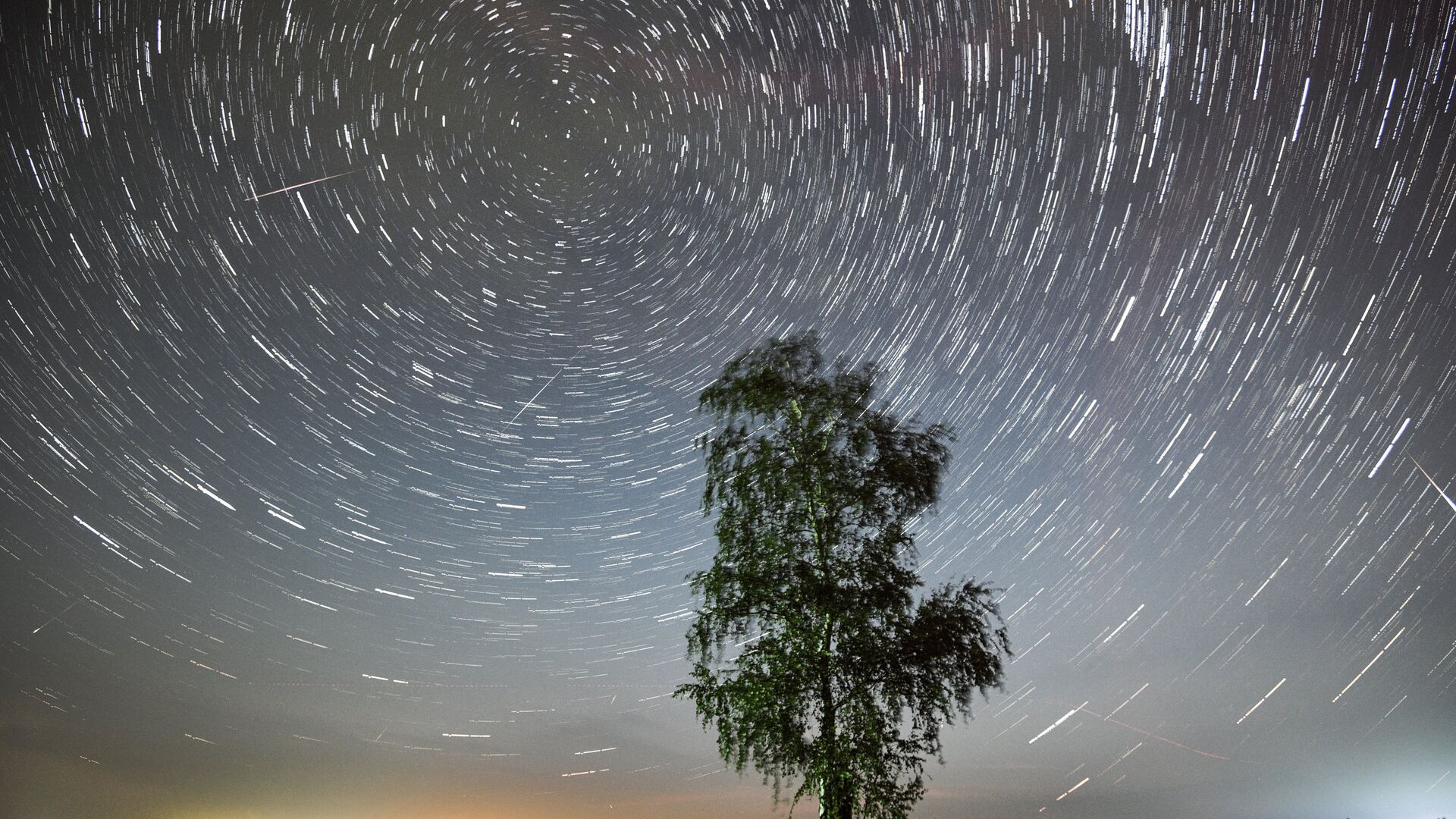https://sputnikglobe.com/20231211/celestial-spectacle-christmas-comet-unleashes-rare-meteor-shower-on-southern-skies-1115526773.html
Celestial Spectacle: 'Christmas Comet' Unleashes Rare Meteor Shower on Southern Skies
Celestial Spectacle: 'Christmas Comet' Unleashes Rare Meteor Shower on Southern Skies
Sputnik International
Set to unfold on December 12, a brand-new meteor shower spawned by the famed 'Christmas comet' 46P/Wirtanen is poised to grace Earth's skies for the first time.
2023-12-11T22:16+0000
2023-12-11T22:16+0000
2023-12-11T22:13+0000
beyond politics
science & tech
star
meteor
meteor shower
space
https://cdn1.img.sputnikglobe.com/img/104448/92/1044489257_0:0:3192:1796_1920x0_80_0_0_7b980617bf8959bfac39425689d78c60.jpg
A new meteor shower is set to paint the night skies on December 12, just ahead of the peak of the Geminid meteor shower. Unlike typical meteor showers originating from comets or asteroids heated by the sun, the looming unique display hails from the 'Christmas comet' 46P/Wirtanen, a Jupiter family comet that orbits between the sun and Jupiter.Though the meteor shower is anticipated to be relatively modest, with an estimated peak of two to 10 meteors per hour, its uniqueness lies in its rarity and limited visibility. Only observers in Oceania and Indonesia are expected to witness the event.The shooting stars, originating from the constellation Sculptor in the southern sky, are projected to appear between 0800 and 1230 GMT.What makes this event extraordinary is that the 'shooting stars' may be the first to originate specifically from 46P/Wirtanen. Despite the comet's previous close flybys, researchers from France and the US discovered its debris had not historically produced meteor showers.However, this year, Earth is expected to intercept a denser region of the comet cloud, making the event more promising.For those lucky enough to be in the viewing zone, stargazers are advised to find a dark spot away from light pollution, armed with binoculars or a small telescope for an enhanced experience. The study regarding the cosmic event has been accepted for publication in the Astronomy & Astrophysics journal.
https://sputnikglobe.com/20231117/amateur-astronomers-prepare-for-peak-of-leonid-meteor-shower-1115034836.html
Sputnik International
feedback@sputniknews.com
+74956456601
MIA „Rossiya Segodnya“
2023
News
en_EN
Sputnik International
feedback@sputniknews.com
+74956456601
MIA „Rossiya Segodnya“
Sputnik International
feedback@sputniknews.com
+74956456601
MIA „Rossiya Segodnya“
meteor shower, meteoroids, christmas comet 46p wirtanen, what is christmas comet, what is 46p wirtanen comet, december 12 meteor shower
meteor shower, meteoroids, christmas comet 46p wirtanen, what is christmas comet, what is 46p wirtanen comet, december 12 meteor shower
Celestial Spectacle: 'Christmas Comet' Unleashes Rare Meteor Shower on Southern Skies
While meteor showers are a common occurrence, what sets this event apart is the unique origin of the shooting stars, a product of debris from the comet's close encounters with Jupiter over five decades ago.
A new meteor shower is set to paint the night skies on December 12, just ahead of the peak of the Geminid meteor shower.
Unlike typical meteor showers originating from comets or asteroids heated by the sun, the looming unique display hails from the 'Christmas comet' 46P/Wirtanen, a Jupiter family comet that orbits between the sun and Jupiter.
Though the meteor shower is anticipated to be relatively modest, with an estimated peak of two to 10 meteors per hour, its uniqueness lies in its rarity and limited visibility. Only observers in Oceania and Indonesia are expected to witness the event.
The shooting stars, originating from the constellation Sculptor in the southern sky, are projected to appear between 0800 and 1230 GMT.

17 November 2023, 22:03 GMT
What makes this event extraordinary is that the 'shooting stars' may be the first to originate specifically from 46P/Wirtanen. Despite the comet's previous close flybys, researchers from France and the US discovered its debris had not historically produced meteor showers.
However, this year, Earth is expected to intercept a denser region of the comet cloud, making the event more promising.
For those lucky enough to be in the viewing zone, stargazers are advised to find a dark spot away from light pollution, armed with binoculars or a small telescope for an enhanced experience.
The study regarding the cosmic event has been accepted for publication in the
Astronomy & Astrophysics journal.



